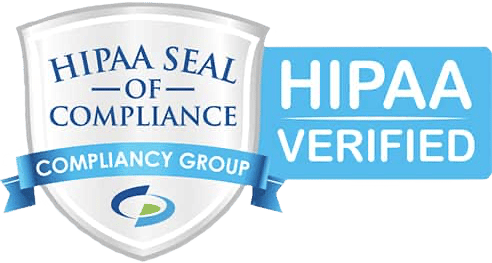People pay a lot for physical security. We build walls and fences to protect our privacy, purchase safes to secure precious valuables, and construct panic rooms and intricate surveillance systems to ensure the safety of our loved ones. The mechanical lock market continues to grow and racks up more than $4 billion a year in sales. In other words, our society spares no expense to keep criminals, unwanted visitors, and the paparazzi at bay.
Yet few SMBs spend much time or money securing one of their most valued business assets: information. They should know better. The virtually continual news feed of ransomware attacks, data breaches, and phishing schemes should have everyone’s attention today, but for whatever reason, many small business owners seem to be crossing their fingers hoping cybercriminals pick on someone else.
Hope isn’t a plan. The risk is ever present, especially with a robust black-market demand for business and personal information. The Dark Web is filled with data which cybercriminals hijack from often unsuspecting companies and individuals who fail to take the proper precautions.
Acknowledge the Problem
Are your clients fully aware of the thriving underworld industry that preys on the missteps of companies like theirs? Chances are, they aren’t. In fact, relatively few of the MSPs I talk to have ever “toured” the Dark Web or spent time investigating where stolen information goes.
That type of knowledge and experience is essential if you’re trying to convey the risks of inaction to your customers without causing unnecessary fear. Enlightened MSPs have more value to the business community as a credible security resource.
Which services and expertise will set you apart? Basic security measures such as firewalls, AV, and anti-malware are critical, but not differentiators. MSPs who deliver ‒ or partner to provide ‒ network and compliance assessments, proactive testing, and advanced protection services stand out more in today’s cybersecurity-minded landscape.
Encryption falls into the latter category. The mystery behind the technology can be a differentiator itself for MSPs who offer these solutions to their SMB customers, but the real value comes from keeping cybercriminals from accessing and possibly selling their data. And that’s only one of the benefits.
The Compliance Factor
Encryption is a hot commodity in the business community. In fact, the market for these solutions is expected to grow from $3.87 billion in 2017 to $12.96 Billion by 2022 with a 27.4% CAGR according to research firm MarketsandMarkets.
Several factors are contributing to that increased demand, including governmental rules and regulations that require organizations to employ different types of encryption methodologies. From Gramm-Leach-Bliley and HIPAA to the Payment Card Industry Data Security Standard (PCI-DSS), MSPs’ customers are being directed to encode and scramble specific data ‒ at rest, in transit, or both [this SANS Institute whitepaper details them all starting on page 5].
Few SMBs want to deal with those issues, and even fewer of those companies have the skills needed to implement, maintain, and test those systems and methodologies to ensure they’re in full compliance. Their options are limited to ignoring the problem or handing it off to thoroughly trained professionals. Most favor the latter.
An Easy First Step with Encryption
One of the greatest channel benefits is the intimidating nature of these technologies. The mystery and complexity of encryption, as well as the ever-changing compliance requirements, keep many SMBs from tackling it on their own.
MSPs should see this situation for what it is: an opportunity to differentiate with minimal investment. First off, the knowledge base and technological expertise are readily available through the partner network, including a host of vendor support and training options to bring your team up to speed on encryption.
Email encryption is a great place to start. Clients with compliance concerns aren’t the only ones to benefit from these technologies. Any business sending employee information to its accountants, such as social security numbers and bank routing details, is at risk. How many of your clients share passwords, login information, customer data, and other sensitive materials through email with no protections in place?
Most businesses assume the cost-benefit of that process is low, not to mention how hard it is to manage, send, and receive encrypted emails.
At least it used to be. With liability concerns on the rise and easy email encryption options available, MSPs can reduce their risks with solutions their employees will actually use ‒ at an affordable price.
That’s a real differentiator. Encryption is one of those value-added services MSPs can use to land significant new prospects and solidify relationships with long-standing customers.
What’s holding you back from delivering the most secure email option available?

